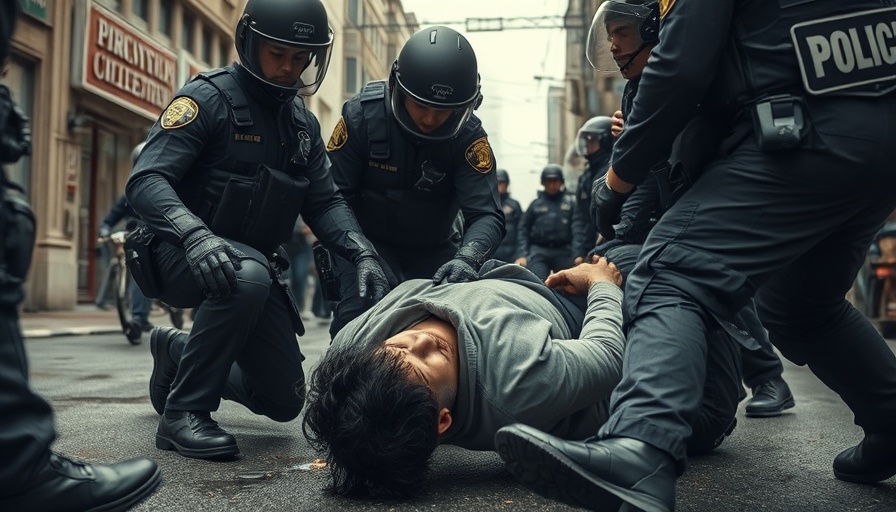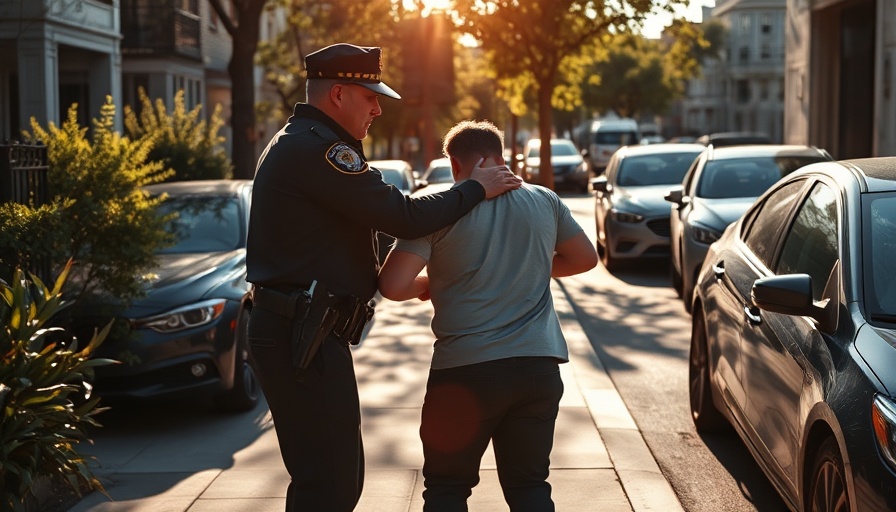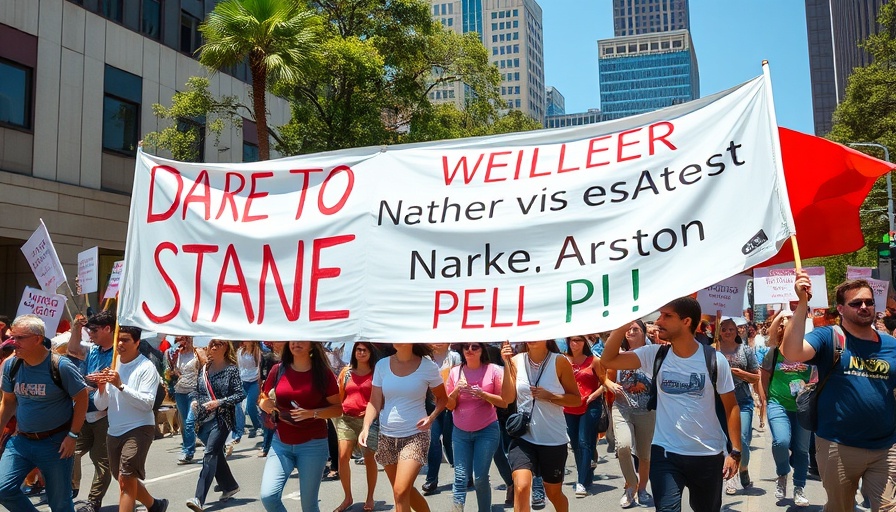
Recent ICE Raids Stir Up Community Tensions in Southern California
In an alarming move, U.S. Immigration and Customs Enforcement (ICE) has ramped up its operations in Southern California, prompting widespread concern among activists and community members. The recent arrests of individuals, including local activist Amanda Trebach, have raised questions about the legality and motives behind these actions.
Understanding the Tactics: Legal Loopholes and Community Impact
ICE and Border Patrol have been exploiting a legal loophole that allows agents to detain individuals based on "reasonable suspicion" of running—a tactic that many see as racially motivated. This has sparked an ACLU investigation aimed at addressing these concerns and assessing whether such arrests breach constitutional rights. The apprehension of those who merely flee in response to the presence of ICE indicates a troubling trend towards unlawful detentions that many are fighting against.
Human Stories: The Faces Behind the Statistics
Amanda Trebach, a dedicated nurse serving marginalized communities in Los Angeles, was arrested while documenting ICE activities during a community patrol outside Terminal Island. Advocates categorize her as a political prisoner, emphasizing her constitutional right to observe and report. Trebach’s arrest signals a chilling effect on those actively working to support immigrant rights, fostering a climate of fear and uncertainty within affected communities.
The Broader Landscape: Mexican Nationals and Self-Deportation
The Mexican Consul General has reported that of the 550 detained Mexican nationals interviewed since June, only 97 have consented to deportation. Most of them, many of whom have familial ties in the U.S. and have lived here for over a decade, are fighting against self-deportation, seeking their day in court instead of voluntarily leaving their homes. The complexities of each individual case underline the desperation and refusal to abandon families and futures.
Community Responses: Solidarity and Action
Grassroots organizations like Unión del Barrio have rallied around those targeted by ICE, calling for justice and immediate release for individuals wrongfully detained. Their demands are not only for Trebach's freedom, but also for an end to practices they deem discriminatory. This kind of solidarity is vital; it sheds light on systemic injustices while empowering communities to stand united against oppressive tactics.
Looking Forward: Hope Amidst Struggles
The situation raises important questions about immigration laws and their enforcement. As future actions unfold, advocates are calling for legal reforms to safeguard civil liberties and protect vulnerable populations from aggressive immigration policies. Community organizing efforts are critical; they inspire activism and forge connections that can lead to systemic change.
Participate in the Movement for Immigrant Rights
As discussions around immigration intensify, it’s crucial to educate oneself about the issues at hand and to engage in local advocacy efforts. Join or support organizations working for immigrant rights, participate in community events, and start conversations about these important topics.
In the spirit of community support and resilience, consider sharing this article to raise awareness about the ongoing struggles faced by immigrants and their allies.
 Add Row
Add Row  Add
Add 




Write A Comment